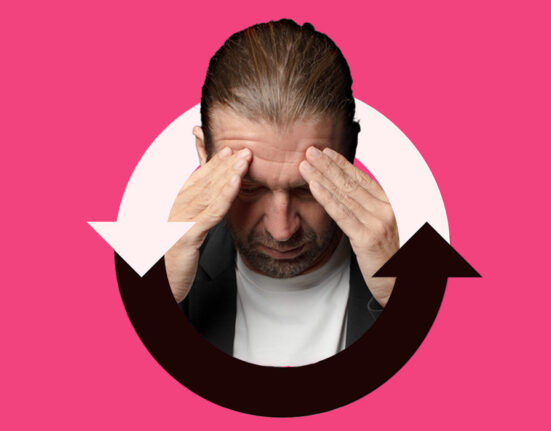The ability to enhance characteristics and traits necessary for efficient working performance makes skill development significant. By honing these abilities, one may also start along the road to personal growth, which can help one reach one’s potential and advance professionally quickly. Additionally, by honing certain abilities, one may naturally incorporate these skills into one’s routine, utilise them to enhance one’s talents and strengths, achieve pleasure and satisfaction, and succeed in your job.
Your talents often encompass abilities or characteristics that you already have or that you may gain or develop via education and training. Communication, problem-solving, interpersonal, and adaptability, self – confidence, integrity, etc are some of the skills that are necessary regardless of the business, albeit they vary depending on the aims of each individual.
A skill is an ability and capacity to carry out complicated tasks or job functions involving concepts (cognitive skills), objects (technical skills), and/or people (interpersonal skills) that is learned via purposeful, methodical, and persistent effort.
Types of skills
Each profession calls for a mix of hard and soft skills. Technical abilities are referred to as “hard skills” and are an example of the specialised knowledge you bring to a certain profession. Soft skills, on the other hand, are workplace skills that describe your working style.
Hard skills i.e. technical skill and soft skills i.e. workplace skills are complementary in that literally any sort of employment requires a combination of the two. Technical skill show that one is adept at the practical parts of your job, while workplace skills show that one can contribute to a supportive and productive work environment. Employers often search for individuals with a mix of technical and workplace skills.
Hard skills
Hard skills, also known as technical skills, are technical knowledge or training that you have gained through any life experience, including in one’s career or education.
Every position calls for a specialised set of industry-specific technical talents. You will need to know how to utilise drawing software if you wish to work as an architect, for instance and the NCARB manages the Architectural Registration Examination, a battery of exams that architects must pass to demonstrate their proficiency in many technical areas.
These assessments, which demand prior knowledge and abilities necessary for job success, are in existence in many other areas. Other companies could be willing to provide on-the-job training for certain technical skills.
Some examples of hard skills include –
- Dual- or multiple-language
- database administration
- software package for Adobe
- Network protection
- SEO/SEM promotion
- Statistic evaluation
- data analysis
- cell phone development
- Design of user interfaces
- Management of marketing campaigns
- systems for managing storage
- programming languages (such Python, Java, Ruby, and Perl)
Soft skills
Soft skills are character qualities and personal habits that affect how you operate both independently and collaboratively. For instance, effective communication is a crucial soft talent that many companies look for. Dependability, successful cooperation, and active listening are a few more.
Soft skills are crucial for both one’s career and job hunt. Soft skills are required to establish a productive workplace, whereas hard skills are required to properly complete technical responsibilities in a job. Employers frequently look for candidates with solid soft and hard talents because of this. Due to the fact that soft skills can occasionally be more challenging to develop, some companies might choose to choose individuals who have a stronger collection of soft skills over hard talents.
For instance, one could be looking for work in human resources but lack any past experience with data analysis software. An employer may pick one over another applicant whose hard talents are greater but who lacks the same degree of soft skills if one has references who can speak to the efficacy of one’s soft skills, such as empathy, open-mindedness, and communication.
Some examples of soft skills include –
- Integrity
- Dependability
- Effective communication
- Open-mindedness
- Teamwork
- Creativity
- Problem-solving
- Critical thinking
- Adaptability
- Willingness to learn
- Empathy
Finding someone’s level of technical skill achievement is frequently simpler than finding someone’s level of soft skill mastery. For instance, deciding whether a cabinet is square and level is simple since that information is objective; but, determining if a person actually excels at communicating may be challenging because doing so might be subjective.
Skills and gender
In the knowledge-driven economy, companies do appreciate soft skills more and more. However, other studies argue that the correlation between gender and soft skills—and the inferred opposite, gender and hard skills—maintains harmful workplace stereotypes. For instance, linking the phrase “soft skills” with women may erroneously imply that they lack hard skills, are incapable of performing maths, or make decisions based on emotion. In the workplace, it could also suggest that men lack emotional intelligence or empathy.
In her 2016 article, Renyi Hong makes the case that “the gendered division between ‘hard’ and soft’ skills preemptively renders it difficult for women to be acknowledged as having computational skills, even if they demonstrate their proficiencies in those areas.” Hong uses the example of a shift in the field of human resources from emphasising “soft” skills like emotional intelligence and interpersonal relationships to “hard” data-related skills like performance analytics, which led some HR professionals to actually call for more men to enter the field.
Another one of the important reasons for stereotyping skills on the basis of gender is patriarchy. According to patriarchy men are taught to behave in a particular manner and are not allowed to portray their soft skills and even if they try to show it they are laughed upon. Similarly if women try to portray technical skills even if they are good at it, society tries to stop them from pursuing what they want.
Soft skills and mental health
Soft skills have the potential to enhance our interpersonal interactions and mental well-being. All of them centre on communication, connection, and human contact. These are the character traits that make it possible for a person to work well and amicably with others.
They entail altering our words and body language as well as having the intuition to understand how someone would want to be addressed in order to interact with others in a way that makes them feel respected and at ease.
In order to help employees with mental health concerns at work, it is crucial to foster excellent communication because every individual is unique and has distinct personalities and demands. Soft skills allow us to put the other person first and have helpful, nonjudgmental conversations.
Acquiring the following soft skills may help us connect with coworkers and other people in a kind and encouraging way that encourages them to communicate about stress, worry, despair, overwhelming feelings, panic attacks, and other mental health symptoms that they might otherwise keep to themselves.
- Listening
- Emotional intelligence
- Being accountable
- Empathy
Developing your skill set takes time, just like with everything worthwhile. Some of these abilities are acquired through employment; other abilities can be ones in which you are already skilled. You could even possess skills that, until now, you hadn’t even considered to be specialised skills.
Looking at a list of skills might be frightening, but keep in mind to tackle each one at a time. When in doubt, choose a new skill to pick up and concentrate on honing it for a while.













Leave feedback about this